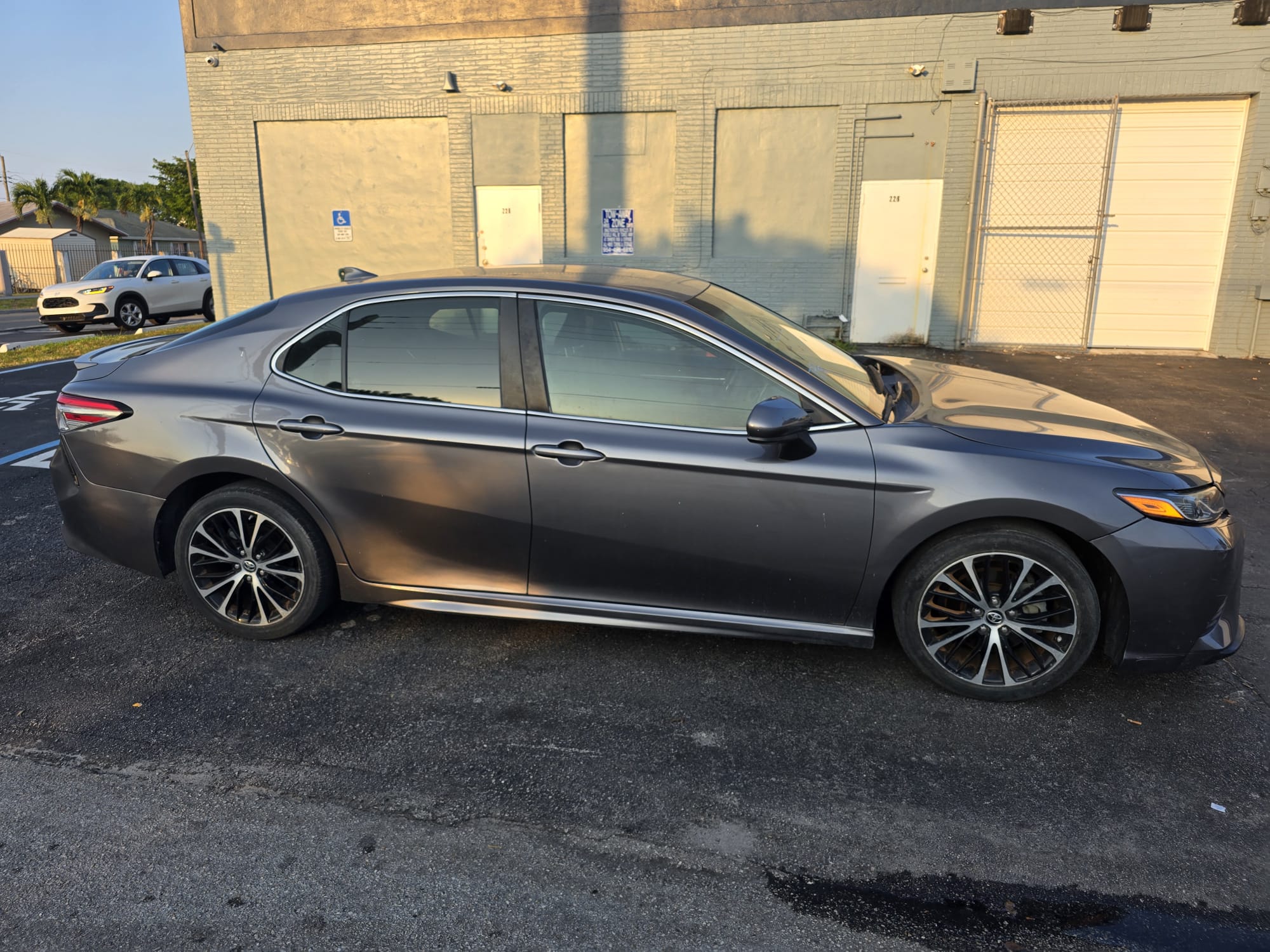Auto insurance
Personal Car Insurance (Personal Cars)
What are the basic coverages available for car insurance in the USA?
Basic coverage is mandatory in all states and is also known as state minimum coverage auto insurance.
It includes:
- Basic coverage – PD and PIP, in some states also requiring Bodily Injury by law
- Property Damage Liability Coverage (PD) (other’s property), which covers the repair or replacement of the damaged vehicle after an accident if you are at fault.
- Personal Injury Protection (PIP) (your health) covers medical expenses and losses related to injuries sustained in an accident, including lost wages and household service expenses. (This insurance can help regardless of who is at fault in the accident)
- Bodily Injury Liability Coverage (other’s health) – this coverage can help pay expenses if you cause an accident that injures another person. It can cover their medical bills and lost wages if they cannot return to work due to the injury.
- Full coverage – includes two primary coverages: collision and comprehensive
Initially, it’s essential to understand that these coverages have a deductible ranging from $500 to $2,500 depending on the state of residence and the car’s make. What does this mean?
In the event of vehicle damage, corresponding to these coverages, the company will compensate you, but you will also have to pay part of the deductible. Therefore, the lower the deductible, the better for you.
When is it important to have full coverage for your vehicle?
It’s recommended that everyone has full insurance coverage to reduce vehicle repair costs. Still, this coverage is most necessary for new cars, and it is mandatory for credit, lease, or financed vehicles, whether new or used.
Are there any additional coverages to improve vehicle protection when insuring?
Uninsured/underinsured motorist coverage (UM/UIM coverage) is additional car insurance that covers drivers in the event of an accident with a driver who does not have insurance or has insufficient coverage to cover damages to your car or the health of the driver and passengers in your car.
- Uninsured motorist bodily injury (UMBI) and Uninsured motorist property damage (UMPD) are subtypes of (UM/UIM coverage) and represent additional types of auto insurance in the USA.
- Uninsured motorist bodily injury (UMBI) covers medical expenses and lost wages related to an accident if the at-fault driver is uninsured or their insurance is insufficient to cover all damages.
- Uninsured motorist property damage (UMPD) covers damage to your car or other property resulting from an accident where the at-fault driver is uninsured or their insurance is insufficient to cover the damages.
- UMBI and UMPD can be sold separately as different coverages or combined under UM/UIM coverage in some states.
- Gap coverage helps pay 25% of the remaining balance on a car loan or lease if your vehicle is stolen or totaled. (For example, if the car is valued at $40,000, and you owe $50,000 to the bank, full coverage pays $40,000, and Gap covers an additional $2,500 (25% of the remaining $10,000)). This is available with Progressive, Dairyland, Bristol West.
- Rental reimbursement covers the cost of renting a car if your car is being repaired after an accident.
- SRV – Substitute Vehicle Rental coverage helps pay for a rental car if your car is being repaired after an accident.
What affects car insurance costs, and does driving experience abroad count?
Insurance companies typically consider driving experience when determining the cost of a policy. If you have driving experience abroad, it may affect the price of your insurance.
If you have a driving history in another country, some insurance companies may consider it equivalent to US driving experience and take it into account when determining the insurance price. This can be helpful if you’ve just moved to the US and don’t have much driving experience in the US.
Main factors that determine the cost of car insurance:
- The vehicle and its history (Insurance is issued based on the vehicle’s VIN number found in your registration and on the windshield. The VIN number is the foundation of your car, and any incidents involving your car are recorded on it. During insurance processing, the insurance company checks the VIN, as your registration is tied to the VIN.)
- Your driving history (the number of years driving, accident-free history, and claims history)
- Registered address (state requirements)
- Your interaction with the vehicle and overall driving history with that vehicle (insurance is always higher on a new car).
- Your insurance history (your insurance history with other vehicles and companies)
Is it more beneficial to insure your car under state or international licenses?
In some states, like Florida, California, Michigan, and Washington, if you have received a state ID, you must update your insurance policy. Otherwise, your insurance coverage may not work.
For cost purposes, it’s more beneficial to insure under a state license while additionally indicating your driving experience outside the US.
The more claims you have with insurance companies, the higher your insurance costs?
Yes. Insurance companies share a database of claims, providing reasons for claims and the amounts paid out. The next insurance company, when issuing a new policy, will account for these claims, automatically factoring in their risks into the price, resulting in a higher premium.
It is recommended to carefully consider filing a claim, review your policy to ensure coverage before submitting a claim.
In what cases can an insurance company deny a claim?
The primary reason is if your coverage does not include the damage caused.
For example, if you have basic liability coverage that only compensates for damage you cause to another vehicle in an accident where you are at fault, but you file a claim for damage to your vehicle.
Another common reason for denial is using your personal car for delivery services like DoorDash, Uber, etc. During such work, personal car insurance does not apply, as the vehicle is being used for profit. In this case, you need commercial insurance, or Progressive offers extended personal insurance policies that cover vehicle usage in delivery services. Naturally, these policies are more expensive as they offer higher coverage.
What are the mandatory insurance requirements in the states?
Utah (UT) (25/65/15)
$25,000 for one person injured in an accident
$65,000 for multiple injured parties
$15,000 for property damage
Arizona (AZ) (15/30/25)
In Arizona, drivers of passenger cars are required to have minimum insurance that covers financial responsibility of $25,000 for property damage, $15,000 per injured person, and $30,000 for all injured persons. This is known as “15/30/25.”
California (CA) (15/30/5)
Mandatory coverage levels: $15,000 per bodily injury, $30,000 for multiple bodily injuries, and $5,000 for property damage.
Additional Personal Injury Protection (PIP) and Uninsured Motorist Coverage (UM) are required.
California follows a “fault-based” system, meaning that the party responsible for the accident is liable for damages. The state also has regulations on how insurance companies can calculate rates, such as limiting the use of credit scores. It’s essential to consider individual needs when purchasing insurance, as rates can vary significantly based on vehicle type, location, and other factors.
Colorado (CO) (25/50/15)
Minimum liability coverage: $25,000 per injured person, $50,000 for multiple injured parties, and $15,000 for property damage.
Personal Injury Protection (PIP) is not mandatory in Colorado but can be purchased as an additional option.
Florida (FL) (non/10 PIP 1000)
Mandatory coverage levels: $10,000 per bodily injury and $20,000 for multiple bodily injuries.
Additional Personal Injury Protection (PIP) is required.
In Florida, when purchasing auto insurance, all family members living at the same address as the vehicle owner must be included in the policy. This applies to spouses, children, and other family members. Therefore, it is crucial to ensure that all family members residing at the same address are listed on the insurance policy.
Illinois (IL) (25/50
/20)
Liability coverage – Minimum liability coverage in Illinois:
- $25,000 per injured person
- $50,000 for multiple injured parties
- $20,000 for property damage
Underinsured motorist coverage – Minimum underinsured motorist coverage in Illinois:
- $25,000 per injured person
- $50,000 for multiple injured parties
Medical payments coverage (UMBI) – Minimum medical payments coverage in Illinois is $5,000.
New York (NY) (25/50/10)
$25,000 per person injured in an accident
$50,000 for all injured persons
$10,000 for property damage
Additional Personal Injury Protection (PIP) and Uninsured Motorist Coverage (UM) are required.
Every state in America has its own minimum insurance requirements.
If you don’t see your state, contact our specialists for additional consultation.
What are the most popular insurance companies in the USA for car insurance?
- Acceptance Insurance
- Allstate
- Bristol West
- Dairyland
- Geico
- National General
- Progressive
This is just a small list of popular companies in the US. Any company will pay out on a claim if the policy was properly set up. It is essential to work with experts when purchasing car insurance.
What is needed for a preliminary car insurance quote?
- Names of all drivers
- Birthdates of all drivers
- Driver’s license numbers
- Driver’s license issue dates
- VIN number of the vehicle
- Residence address, including zip code
- Required coverage
Can you get a quote to reduce the cost of an existing insurance policy?
Yes, of course. In this case, additional information is required for a preliminary calculation:
- Current insurance company name
- Coverages
- Monthly premium
Do you need insurance for your car, or are you looking to reduce the cost of an existing policy?
For these and other questions, feel free to contact our specialists via WhatsApp, and we will help you professionally select the necessary coverage at an affordable price.

Auto insurance in USA

Auto insurance
Frequently Asked Questions (FAQ)
Yes, you cannot drive without insurance on your vehicle. Using a personal vehicle without appropriate insurance can result in fines and serious legal issues.